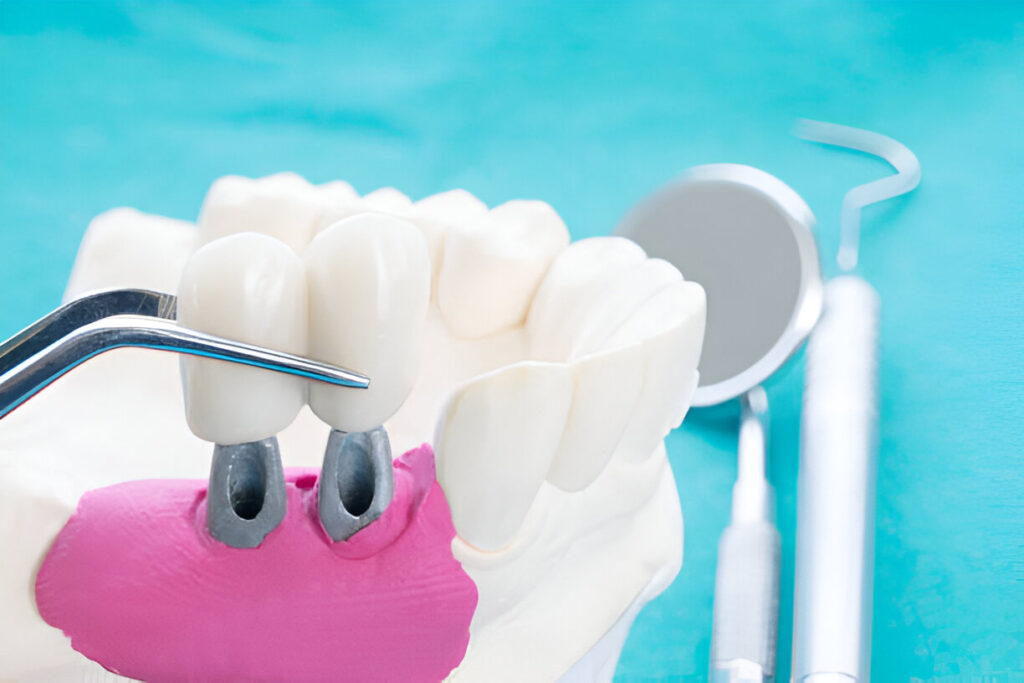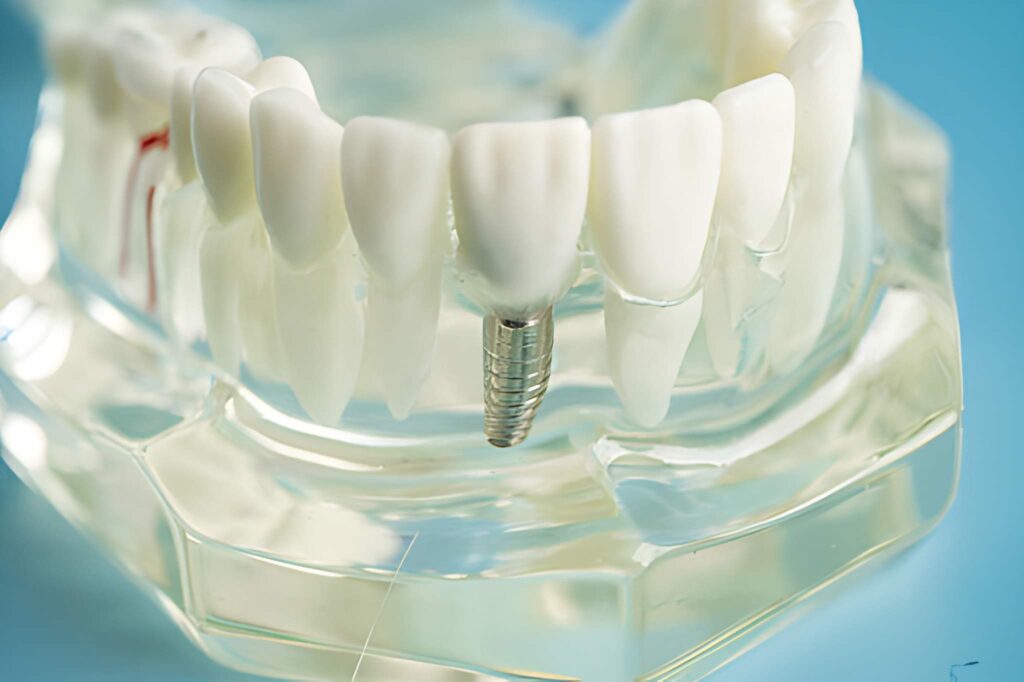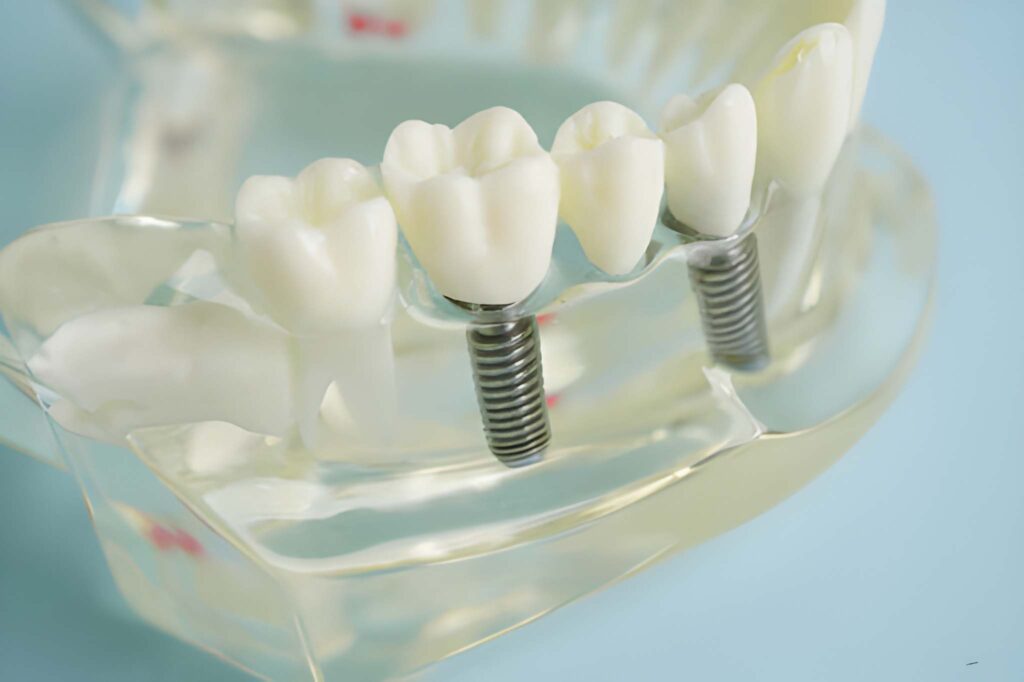Dental implants are artificial tooth roots made from strong materials like titanium. Dentists place them into the jawbone to replace missing teeth. Over time, the implant fuses with the bone, creating a solid base for a crown or bridge. Most people choose dental implants because they last long and look like natural teeth. While the procedure is usually safe, some people worry about other parts of the body being affected. One common question is, “Can dental implants affect your eyes?” Let’s look at how implants work and whether there is any real risk to your eyesight or eye health.
Connection Between Teeth and Eyes
The eyes and teeth may seem far apart, but parts of your upper jaw sit just below your eyes. Above your back teeth are hollow air-filled spaces called sinus cavities, which are close to your eye sockets. This is why any dental work in the upper jaw, especially near the sinuses, must be done with care. While complications are rare, they can happen. Most regular dental implants pose no risk to your vision. If you’re considering treatment, an NHS Dentist in Aberdeen can guide you through your options and help ensure procedures are carried out safely and effectively.
Can Dental Implants Restore Face Shape?
Zygomatic Implants and Eye Risks
Zygomatic implants are different from regular implants. These are longer implants placed into the cheekbone, also called the zygoma. They are used when someone doesn’t have enough upper jawbone for standard implants. Because the zygomatic bone is near the eye socket, there is a small risk that the implant may come too close to the eye. If placed at the wrong angle, it may touch or injure eye muscles. This can lead to pain, blurry vision, or trouble moving the eye. However, these cases are extremely rare and usually linked to poor surgical planning or errors.
What Can Go Wrong?
Although most dental implant surgeries are successful, rare complications can occur. If a zygomatic implant is placed incorrectly, it can damage muscles around the eye, such as the lateral rectus. This may cause eye movement problems or double vision. Another risk is bleeding during surgery, which may spread to areas near the eye. Some people may also experience sinus infections after upper jaw implants, and in rare cases, these can affect the eyes. Fortunately, such problems are not common. They mostly happen in complex procedures involving the upper jaw or cheekbone, not in simple implant cases.
Can I Get Dental Implants Years After an Extraction
Symptoms to Look Out For
If an implant is placed too close to the eye area, you may notice certain warning signs. These include pain around the eye, blurred or double vision, swelling near the cheek or eye, and trouble moving the eye in certain directions. Sometimes, these symptoms appear shortly after surgery. Other times, they may take days or weeks to show. If you’ve had a dental implant placed near your upper jaw and experience any of these signs, contact your dentist or doctor straight away. Early treatment can prevent further damage and improve your chance of full recovery.
Can I Drink Alcohol After Dental Implant?
How Dentists Prevent Eye-Related Issues
Dental professionals take many steps to avoid eye-related complications. They use special 3D scans before surgery to see the exact position of your bones, nerves, and sinuses. This helps them place the implant at the correct angle and depth. In complex cases, they may work with surgeons trained in facial and eye structures. By planning carefully and using the right tools, dentists can keep you safe. That’s why it’s important to choose an experienced and qualified dental professional for your treatment, especially if you need work done in the upper jaw or near the sinus area.
Can Dental Implants Cause Ear Pain?
Keeping Yourself Safe After Surgery
After surgery, follow your dentist’s aftercare advice closely. Rest and avoid hard or hot foods for a few days. Use cold packs if your face feels swollen. Avoid blowing your nose too hard, especially if your implant is near the upper jaw. Good oral hygiene is also key. Brush gently, avoid smoking, and clean around the implant once healing starts. If you notice any pain, swelling, or problems with your vision, report them early. Even though eye-related problems are rare, being careful during the healing stage will help avoid risks and keep your mouth and eyes healthy.
Can I Eat Bread After a Dental Implant
Final Thoughts: Are Eyes at Risk?
In most cases, dental implants do not affect your eyes. Regular implants placed in the lower jaw or front upper teeth are far from your eye sockets and are very safe. Zygomatic implants, placed near the cheekbone, carry a small risk because of their close location to the eyes. However, with the right planning and skilled hands, problems can usually be avoided. If you’re thinking about dental implants and feel unsure, talk openly with your dentist. Understanding the procedure and knowing what to expect will give you peace of mind and protect your health overall.es. Eye-related complications are very rare and usually occur only in special cases. Choosing a skilled dentist and following aftercare instructions can help you stay safe and comfortable.
Expert Implant Care at Holburn Dental and Implant Centre
Thinking about dental implants but feeling unsure about the risks? At Holburn Dental and Implant Centre, our skilled team ensures safe, precise, and comfortable implant treatment tailored to your needs. We use advanced imaging and careful planning to reduce complications and protect your overall health, including areas near the eyes.
Book a consultation today with Holburn Dental and Implant Centre to discuss your options with confidence. Your smile is in trusted hands. Call us now to schedule your appointment and take the first step towards long-lasting oral health.
Frequently Asked Questions
Can dental implants near the upper jaw affect my eyes?
Yes, but only in rare cases. Implants placed too close to the eye socket—such as zygomatic implants—may cause pressure or damage to nearby eye muscles. However, careful planning by your dentist greatly reduces this risk.
What eye symptoms should I watch for after implant surgery?
Watch for blurred vision, double vision, swelling near the eye, or pain behind the eye. These symptoms are uncommon but should be reported to your dentist or doctor right away if they appear after upper jaw implant placement.
Are regular dental implants safe for my eyes?
Yes. Standard implants placed in the lower or front upper jaw are far from the eyes and do not affect vision. The eye-related risks are only linked to specialised procedures in the cheekbone or upper back jaw area.
How can dentists avoid problems near the eyes?
Dentists use 3D scans and detailed images to plan the implant position carefully. In complex cases, they may work with surgeons who understand facial and eye anatomy to ensure safe placement and avoid damage near sensitive areas.
Should I be worried about getting dental implants?
No, most people have dental implants without any issues. Eye-related complications are very rare and usually occur only in special cases. Choosing a skilled dentist and following aftercare instructions can help you stay safe and comfortable.
Holburn Dental and Implant Centre for reliable dental implants in Aberdeen




